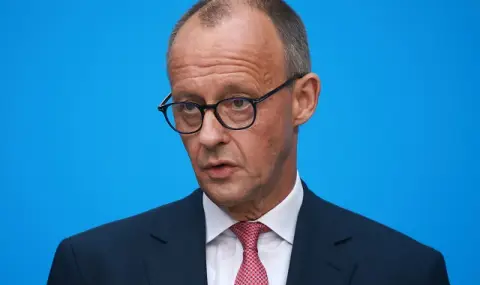Ambitious, assertive, purposeful, but too impulsive and conservative - the Christian Democrat Friedrich Merz has every chance to become the future chancellor of Germany. Portrait of a CDU politician.
Friedrich Merz has been waiting for this moment for a long time. When in 2002 the lawyer lost the battle for the leadership of the Christian Democratic Union (CDU) to Angela Merkel, he gradually withdrew from politics. But 22 years later, Merz has a chance for full revenge, after this week it became clear that he will be the CDU/CSU candidate for the chancellor post in Germany.
The last obstacle in front of Merz was called Markus Söder - the leader of the Bavarian Christian Social Union (CSU) has repeatedly shown that he also aspires to the chancellorship. Three years ago, when Angela Merkel announced she was stepping down, speculation began about a possible nomination for Söder. But he was never able to win enough support among his CDU partners, and Armin Laschet was nominated as chancellor, but he lost to Olaf Scholz and the Social Democrats in the Bundestag elections. Mertz must now learn from Laschet's mistakes in order not to repeat his failure in September 2025.
Convinced opponent of Merkel
Mertz spent nearly 10 years outside politics - a time during which he watched it from the back row. At one time, he stepped down after disagreements with Angela Merkel, subsequently sporadically criticizing some of her decisions - for example, regarding migration or Germany's rejection of nuclear energy.
Initially, his attempts to head the CDU after her withdrawal were not successful - he first lost to Annegret Kramp-Karrenbauer and then to Armin Lacchet. Mertz himself says he fought a three-year battle against the “establishment in the party” before he managed to assert himself in 2022. Such statements also reveal the peculiarities of Merz's character, notes ZDF - many consider him too impulsive and even frivolous. Two more things in which he fundamentally differs from Angela Merkel.
Conservative and wealthy
However, the biggest difference between them is in policies - while under Merkel the CDU was considered far more moderate and liberal, under the leadership of Merz the party turned to the right and even drew accusations of populism. He himself was harshly criticized some time ago because he said that some young immigrants in Germany behave like "little shepherds", and he spoke about "social tourism" to some Ukrainian refugees. His decision to travel by private jet for the wedding of German Finance Minister Christian Lindner in 2022 has also drawn heavy criticism. Lately, however, Merz has been more reserved and his outbursts are reserved only for closed-door party meetings, insiders told ZDF.
Worse image than some rivals
His rating in opinion polls is weaker than that of his former rivals Markus Söder and Hendrik Wüst (Premier of North Rhine-Westphalia). These differences are particularly evident among women and among young voters.
Mertz, who for years worked for large corporations and is considered a multimillionaire, has the image of a politician who is far from the people. He is a devout Catholic and has three children. The Christian Democrat has never led a ministry or has any administrative experience, but his supporters say his vast experience in the private sector will help him jumpstart Germany's stagnant economy. He himself promises lower taxes for businesses, fewer social benefits and lower electricity prices.
The line following Mertz shows results
Despite doubts and active efforts to improve his image, the Christian Democrats seem united around the candidacy of Friedrich Merz. Hendrik Wüst warned at the beginning of the year that the Christian Democrats should stick to the “policies of the time”, which Merkel led, and not to “score cheap points”. However, now he also stood behind Mertz.
The new program and the line on which the candidate for chancellor of the Christian Democrats leads his party is already showing results, including electorally. The CDU leader also takes an increasingly active role on the international stage, including in the European People's Party. It remains to be seen whether he will be able to fight for the chancellorship and whether he will fulfill one of his main goals - to bring back a part of the voters who voted for the “Alternative for Germany”.
